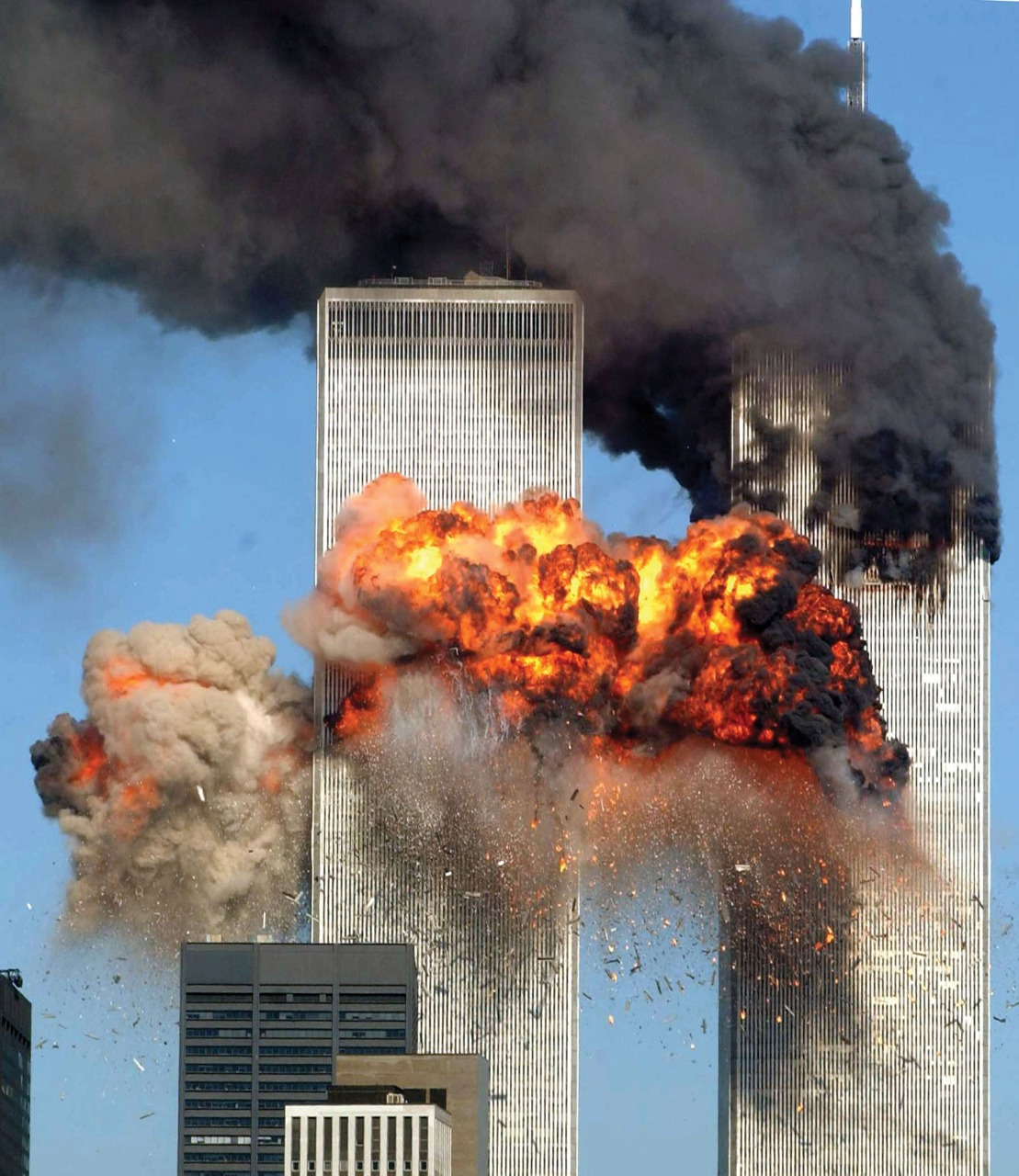For the first time in history the mainland of the United States had been attacked by unknown enemies.
Where was I, and what I was doing on 11 September 2001? My daughter Ritu and I were flying to New York in an Air India plane. I was to attend a meeting at the UN. About two and a half hours out of London, Ritu, who was occupying the window seat, said to me, “Papa, why is the plane taking a right turn?” I was reading a book. Ritu was right. I asked one of the air hostesses, “What is happening?” She whispered in my ear, “Sir, Kennedy airport has been bombed. We are ordered to return to London.” “Who has done the bombing?” I asked. She said she did not know.
In two hours, we were back in London. When we reached the flat, I noticed my wife, Hem glued to the TV. I could not believe what I saw. The Twin Towers, the highest buildings in New York were burning. Repeatedly the TV showed two planes striking the towers.
For the first time in history the mainland of the United States had been attacked by unknown enemies.
Islamic extremism was strengthened. The name and crimes of Osama bin Laden began haunting the world. On 9/11 there was alarm, chaos and doubt in America. Fear too. The President of the United States was not in Washington. He was in Sarasota, Florida, reading, “The Pet Goat” in a school. An aide walked in, whispered in Mr Bush’s ear that the Twin Towers had been attacked and burning. The President left the school. For several hours America and the world did not know where Mr Bush was. Vice-President Dick Cheney was inoperative in a White House bunker.
Mr Bush invaded and destroyed Iraq, a secular, non-aligned country in search of weapons of mass destruction. None were found. Mr Bush bypassed the UN Security Council. I spoke in the Rajya Sabha, condemning the US invasion of Iraq. The US took note of my speech. Consequences followed. It is not necessary to go into them now.
Let me quote from Pratap Bhanu Mehta’s deeply impressive and wise article in yesterday’s Indian Express. Reading the “Unprecedented Acts of terror on 9/11”. He writes, “They set in motion two crises that are still with us.
“The first was the crisis of the West. It is often said that more than 9/11, it was the overreaction and response to 9/11 that shaped its meaning. There is a great deal of truth to that: 9/11 became the pretext to start two wars, put in motion the perpetual war machine, legitimize unaccountable exercise of executive power, institute the surveillance state, provide mendacious justifications for torture and reinstate the idea that civilian causalities could be counted as mere collateral damage.”
In the last few days, I have read two bold and perceptive books on Afghanistan:
“The Afghanistan Papers: A Secret History of The War”, by Craig Whitlock. It is devastatingly critical of American thoughtless and disastrous policies in that country.
“Quest for a Stable Afghanistan” by Sujeet Sarkar. He spent 14 years in Afghanistan. His is an illuminating book.
***
Was Jayaprakash Narayan a great man? Yes, he was. What are the criteria for calling an individual a great man. For me the definition is provided by the late Oxford philosopher, Isaiah Berlin: “To call someone a great man is to claim that he has intentionally taken a large step, one far more beyond the normal capacities of men, in satisfying or materially affecting, central human interests—permanently and radically alters the outlook and values of a significant body of human beings.”
JP’s refinement of mind and heart were exceptional. Inevitably he had shortcomings. Although in the power game, he was morally put off by it. You can’t have it both ways. Nehru has great affection for him and considered JP a suitable successor for him and told him so. JP was not interested.
With the exception of Mahatma Gandhi and Jawaharlal Nehru, Jayaprakash Narayan was the man I admired most, not ignoring his peripatetic politics. Often he frittered away his time on matters of no importance.
I met him five times very briefly and was only too aware that I was in the presence of greatness.
Why have I chosen to write about JP? I have read an engrossing, very well researched, analytical, arresting and stimulating biography of Jayaprakash Narayan, “The Dream of Revolution” by Sujata Prasad. Her father, the much respected Professor Bimal Prasad, passed away in 2015. He had made a substantial contribution to helping his daughter while she was writing the book.
Sujata Prasad’s brother, Jayant Prasad was my younger colleague in the IFS.

